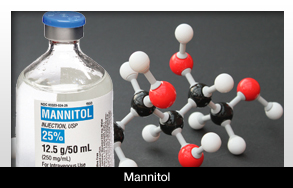 |
Mannitol can increase the success of local anesthetics in the inferior alveolar nerve block.
The most common local anesthetic injection is the inferior alveolar nerve block but it has a failure rate of anywhere from 10 to 39 percent.
This issue is analyzed in the current issue of the journal Anesthesia Progress.
To explain this research, 40 adults were part of a study and each received an IAN block on three occasions at least a week apart. The study looked at the ineffectiveness of a standard anesthetic, like lidocaine or epinephrine, and compared it to the ability of the combination of lidocaine with epinephrine and 0.5 M of mannitol. Mannitol is a sugar alcohol present in fruits and vegetables and can be excreted quickly by the kidneys.
Mannitol has been proven to impact the opening of the perineurial membrane. In situations where there is IAN block failure, the perineurial barrier doesn’t permit full diffusion of the anesthetics. Mannitol helps because it increases permeability in these cases.
After people were injected with IAN block solutions, their pain levels were measured with a test of their mandibular teeth in four-minute intervals during a one-hour period. According to the study, it’s evident that when mannitol is added to lidocaine with epinephrine, there is a much higher chance of success for the anesthesia.

|










